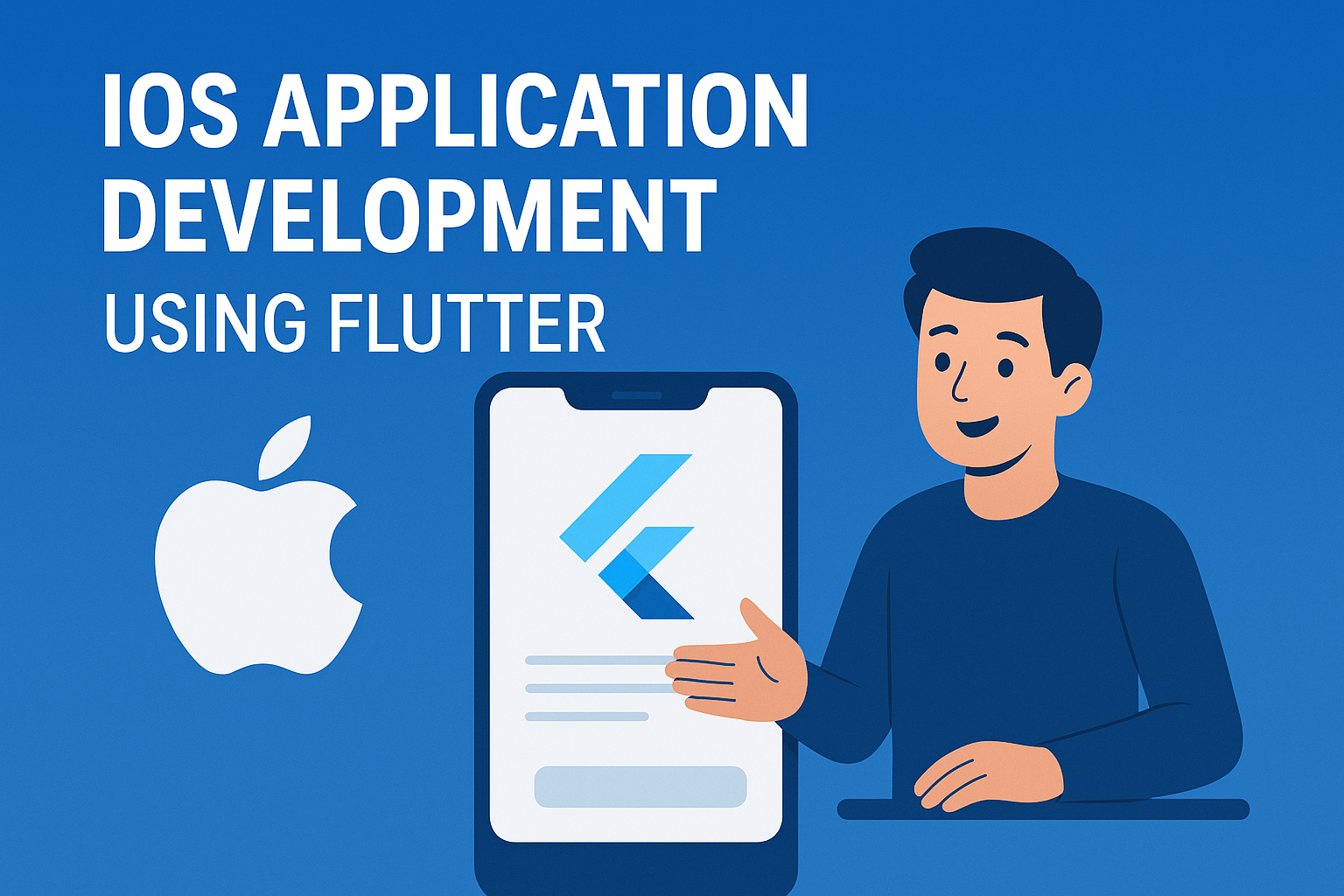In th last few years ,IOS application development has been easy due to the flutter. Since flutter allows cross platform development ,the development of IOS application has become easier. Flutter is providing alternative approach to native Swift/Objective-C development.Here’s what characterizes Flutter iOS apps:
1. What Flutter Brings to iOS Development
Flutter compiles to native ARM64 code on iOS devices, delivering performance that rivals native apps. The framework bypasses the need for JavaScript bridges or web views by rendering directly to the iOS graphics stack using its own Skia rendering engine. This approach ensures consistent performance across different iOS devices and versions.
2.Key Advantages for iOS Apps
The cross-platform nature remains Flutter’s strongest selling point – write once, deploy to both iOS and Android while maintaining native performance. Flutter automatically adapts to iOS design patterns through Cupertino widgets that mirror native iOS components, ensuring apps feel at home on iPhones and iPads.
The development cycle is significantly faster thanks to hot reload, which allows developers to see changes instantly while preserving app state. This is particularly valuable for iOS development, where traditional Xcode builds can be time-consuming for complex projects.
3. Performance Characteristics
Flutter iOS apps perform exceptionally well because they compile directly to native machine code. The framework maintains 120fps on ProMotion displays and handles complex animations smoothly. Memory management is efficient, though initial app size tends to be larger than native iOS apps due to the Flutter runtime being embedded.
4. Integration with iOS Ecosystem
Flutter provides robust access to iOS-specific features through platform channels and community plugins. You can integrate with Core Data, utilize iOS-specific APIs, access device capabilities like Face ID and Touch ID, work with ARKit, and leverage iOS system services. The plugin ecosystem covers most iOS functionalities developers typically need.
5. Development Experience
Flutter development for iOS is streamlined with excellent Xcode integration and support in popular IDEs. The widget-based architecture translates well to iOS development patterns, and Cupertino widgets provide authentic iOS look and feel out of the box. Testing on iOS simulators and devices is straightforward through Flutter’s tooling.
6. App Store Considerations
Flutter apps deploy seamlessly to the App Store and are indistinguishable from native apps to end users. Apple has no restrictions on Flutter apps, and many high-profile iOS apps in the App Store are built with Flutter, including apps from Google, Alibaba, and BMW.
7. Considerations
While Flutter excels for most iOS development scenarios, there are trade-offs to consider. Apps requiring cutting-edge iOS features immediately upon Apple’s release might need to wait for Flutter plugin support. Additionally, developers deeply embedded in the Apple ecosystem might miss some Xcode-specific development tools and workflows.
Flutter represents a mature, production-ready choice for iOS development, especially valuable when targeting multiple platforms or when development speed is crucial.
Find More Content on Deadloq, Happy Learning!!
